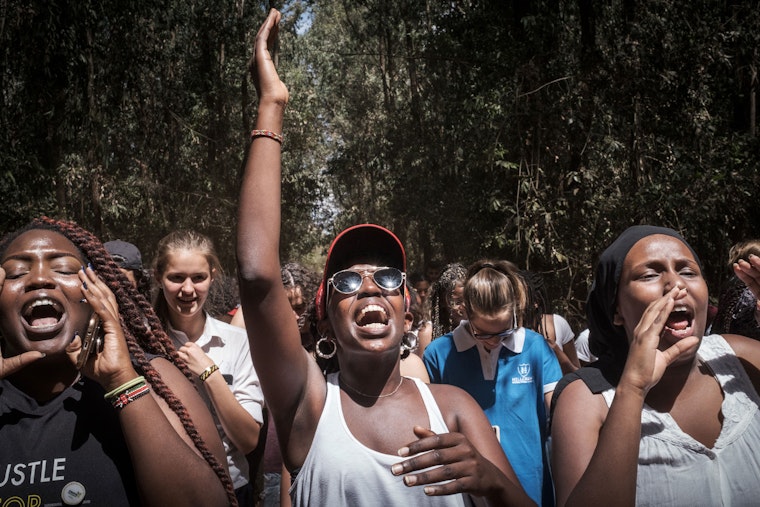Q&A: Organizing for Climate Justice in Sub-Saharan Africa

In sub-Saharan Africa, the impacts of the climate crisis are felt by society’s most marginalized people, where environmental destruction exacerbates economic and social inequalities already present in the region. Open Society Foundations spoke to Mariama Diallo, a climate justice activist working to mobilize communities in her native Senegal, and amplify African voices in the global response to the crisis.
How does the threat of climate change manifest itself in sub-Saharan Africa?
While Africa does not contribute much to global greenhouse gas emissions—around four percent, according to a recent study [PDF] from the Brookings Institution—its people are already suffering from the drastic consequences of climate change.
In my country Senegal, for example, where the economy is largely dependent on the environment, climate change ultimately exacerbates poverty and further contributes to inequality by promoting estate conflicts, rural exoduses, and clandestine immigration.
What are some of the ways that climate change threatens Senegal’s economy?
First of all, coastal erosion threatens several of the country’s large cities; Dakar, Mbour, and Saint-Louis. More generally, extreme weather phenomena are becoming more frequent—which means there’s more economically harmful flooding in the cities, too.
Outside of the cities, there are issues such as the salinization of water, the damage to soil, and the disruption to rainfall cycles—all of which significantly affect agricultural production. We also see the loss of marine biodiversity, which threatens the fishing industry and its many workers.
And then there’s the problem of water insecurity, which is already quite serious. Many communities in the north of Senegal, for example, are having more trouble than ever accessing water for their livestock and themselves.
What inspired you to involve yourself with the environmental justice movement?
I decided to get involved because I believe that climate change puts Africa’s economic and human development at risk; and because I worry that, unless they participate in designing global policy responses to climate change, African countries could become “outsiders” who effectively don’t control their own economies—or even their people’s access to food.
The good news is that this is not an inevitability; we can make changes to create fairer and more sustainable societies. That means the fight for climate justice in Africa is not only important for those who care about the environment—it’s important to everyone who wants Africa to be a prosperous, free, and self-sufficient continent.
What’s most challenging about organizing for climate justice?
The greatest challenge is rallying a large number of people, so we try to use the everyday problems that people face as a way to get them involved.
We also try to be innovative with our rallying methods, placing an emphasis on the festive and friendly side of campaigning. We think of it as a kind of joyful activism. This is why all our events are very focused on culture, to attract a large audience and not limit the rallying process to activists and others who agree with us already.
This allows us to expand and diversify the circle of participants, and it’s the approach to we used to start Camp Climat.
What is Camp Climat?
Camp Climat is a training camp that deals with climate change issues. During our most recent edition—which took place in the Marine Protected Area of Bamboung, in the Saloum delta—more than 300 people spent 10 days discussing climate and social justice while also gaining the skills that they will need to organize others in the future.
It’s also a chance to tell people about the local responses to climate change, which is something that many Senegalese people unfortunately don’t know about. Last but not least, Camp Climat promotes community activities that are essential for adapting to a climate change future—reforestation, for example.
Camp Climat received support from the Open Society Foundations.